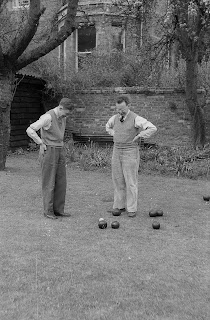
“And whenever you fast, do not look dismal, like the hypocrites, for they disfigure their faces so as to show others that they are fasting. … But when you fast, put oil on your head and wash your face, so that your fasting may be seen not by others but by your Father who is in secret ...” (Mt 6:16-18).
Cowley Road
On the other side are those who listen attentively to the words of Jesus, who put oil on their head as a sign of joy, and wash their heads, and perform their fasting ‘in secret’, in hiddenness, in their inmost selves, where their heavenly Father sees. What the hypocrites with their ridiculous masks have failed to see is that the practice of fasting is about replacing pretence with reality. It means going into the secret, hidden place which our heavenly Father sees. It involves stripping away those things, even good things, with which we normally surround ourselves and which we convince ourselves that we can’t live without. It means confronting those desires which can threaten to enslave us, rather than pretending that they don’t really exist or can’t do us harm. And as that stripping away happens and the battle-lines are drawn, fasting heightens our awareness of our utter dependence on God.
On the other side are those who listen attentively to the words of Jesus, who put oil on their head as a sign of joy, and wash their heads, and perform their fasting ‘in secret’, in hiddenness, in their inmost selves, where their heavenly Father sees. What the hypocrites with their ridiculous masks have failed to see is that the practice of fasting is about replacing pretence with reality. It means going into the secret, hidden place which our heavenly Father sees. It involves stripping away those things, even good things, with which we normally surround ourselves and which we convince ourselves that we can’t live without. It means confronting those desires which can threaten to enslave us, rather than pretending that they don’t really exist or can’t do us harm. And as that stripping away happens and the battle-lines are drawn, fasting heightens our awareness of our utter dependence on God.


















